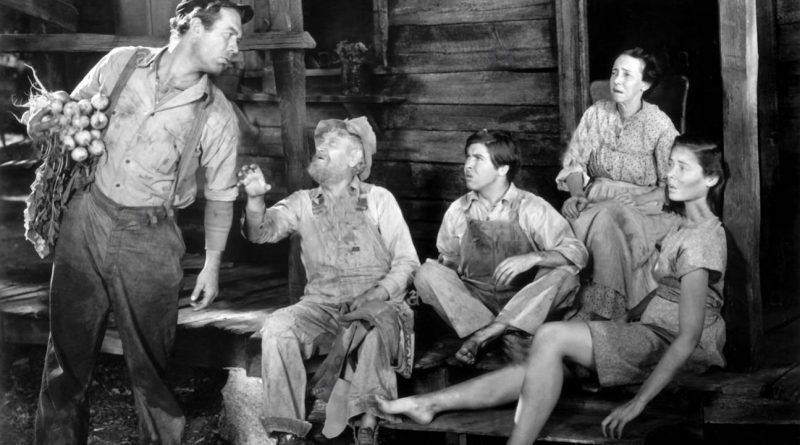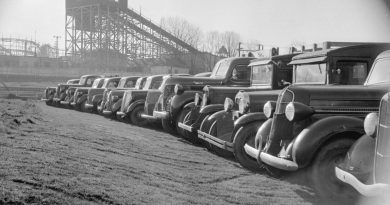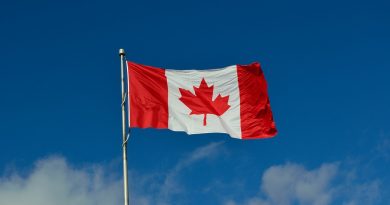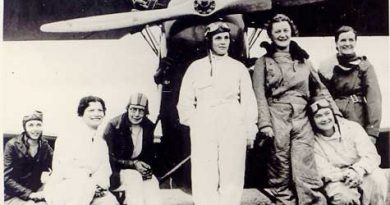1953
Above:A performance of Tobacco Road.
[Image: www.movieforums.com/]
*****************************************
You’ll note that these years include events listed under “Also in . . .” These are events for which we don’t have a specific date. If YOU know the specific date of an event shown there, please notify us . . . and cite the source! Many thanks!
*****************************************
January 6 Vancouver’s longest wet spell began. It ended 29 days later. There had been recorded rain on every one of those 29 days. (On the same subject: believe it or not, no fewer than five cities in Canada have an average annual precipitation higher than Vancouver’s paltry 1,113 mm. Every major city from Quebec City eastward to St. John’s gets more annual precipitation than Vancouver.)
January 9 Peter Armstrong, who has made a smash success of the Rocky Mountaineer train excursions, was born in Vancouver. See this site.
January 16 The trial featured a parade of witnesses — “ordinary people”, university professors, clergy, and even author Erskine Caldwell himself — debating whether Tobacco Road was “lewd and filthy”. Tom Dohm, later QC and president of the Vancouver Stock Exchange, took the case as a public service. Director Dorothy Davies took the stand for a two-hour, emotional testimony in which she argued that the play did not pander to baser instincts but portrayed an aspect of life — a particularly ugly aspect, but life, nonetheless.
At the end of it, though, Magistrate WWB McInnes found the cast, director and theatre owner Charley Nelson guilty. Sydney Risk, manager of the Everyman Theatre, was let off on a technicality. Vancouver County Court overturned the verdict on appeal, but the BC Court of Appeal reinstated the verdict, when City Prosecutor Gordon Scott successfully argued that, among other things, County Court Judge James McGeer (brother of former Mayor Gerry McGeer) had been “unduly influenced” by witnesses. There was no further appeal.
January 17 From the Sun: Ivor Neil, General Manager of the Transportation Division of B C Electric, was re-elected president of the Vancouver Tourist Association. Re-elected as VP was CKWX’s F. H. “Tiny” Elphicke, head of the Western Canada Broadcasting Association. Also elected VP was Ralph Baker, Past President of the Vancouver Board of Trade. The association’s office was at 596 West Georgia at Seymour.
February 2 Mabel Ellen Boultbee (née Springer), Sun columnist, died at the Ritz Hotel in Vancouver, aged 77. The first white child born on Burrard Inlet, she was the daughter of Mary Frances Miller (sister of Jonathan Miller) and Benjamin Springer, manager of Moody’s Sawmill. A divorcee, she briefly ran a school with her sister, Eva, in the 1890s. A journalist for 30 years, she wrote the Vancouver Sun‘s women’s pages until just before her death. A prominent citizen and member of the Georgian Club, her apartment (shared with Eva) was a gathering place for the city’s social elite of the 1930s and 1940s.
March 29 CBC Radio newsman Terry Donnelly was born.
April 14 Rick (Richard Alan) Watson, disabled rights activist and writer, was born in Bowmanville, Ont. Disabled by cerebral palsy, he came with his family to BC, was a Province columnist from September 1991, pecking out one letter at a time with a wand attached to a headband. He died April 30, 1994 in Vancouver. His funeral was heavily attended by many friends.
May 5 Future film director Phillip Borsos was born in Hobart, Tasmania, Australia. He would move to Vancouver at age 5. His most well-known film was the delightful The Grey Fox (1982), about train robber Bill Miner. Borsos died of leukemia at 41.
May 20 CKNW commentator Jon McComb was born.
May 22 BC Electric opened the Dal Grauer Substation on Burrard Street. Architectural historian Harold Kalman describes it as “uncompromisingly modernist, with the brilliantly-colored workings exposed behind a transparent glass wall—which was replaced with opaque glass, following a minor explosion.” (Architects: Sharp and Thompson, Berwick, Pratt).
May 29 Edmund Hillary and Tensing Norgay became the first to reach the top of Mount Everest, the world’s tallest mountain.
May 31 Chris (Christopher) Spencer, department store executive, died in Vancouver, aged 84. He was born May 17, 1869 in Victoria, the son of David Spencer. “He joined his father’s firm in 1882,” writes Constance Brissenden, “and in 1907 established the Vancouver branch. After his father’s death in 1920, he was president until purchase of the Spencer stores by the T. Eaton Co. (Dec. 1, 1948). ‘Mr. Chris’ was known for his public spirit and generosity. An early supporter of UBC, he was appointed to the board of governors (1921-36). In 1950 he established the Chris Spencer Foundation to assist worthy students.”
May The Duke of Westminster, one of Britain’s wealthiest peers, unveiled plans for a multi-million dollar industrial project on Annacis Island. It occupied just over 445 hectares. In 1955 it would be joined by a causeway to New Westminster. Prior to the development of industry the island had been used for farming and fishing.
June 2 Coronation in London of Queen Elizabeth II.
Spring A Women’s Institute convention in Cloverdale passed a resolution calling for a National Health Scheme to give complete coverage for all Canadians.
Spring KVOS (“Your Peace Arch Station”) signed on in Bellingham, but had its real audience in Greater Vancouver. Rogan Jones’ little “shoestring” station launched its programming with kinescope coverage of the coronation of Queen Elizabeth II. By the end of the year sales of TV sets in Vancouver (at about $500 a pop) were in the tens of thousands and residents with a $50 aerial or a pair of “rabbit-ear” antennae could watch three U.S.-based stations: KING (Channel 5), KVOS (Channel 12) and KOMO (Channel 4). See the December 16 entry below.
June 9 The Community Information Service, managed by Elaine Keene, opened its door and its phones. The background: the Community Chest and Council (now United Way), recognizing that it had become increasingly difficult to know where to turn for help with a problem, had determined that Vancouver needed an Information and Referral Service, a place where trained professionals would help people assess their situation and identify appropriate services to meet their needs. A first year budget of $7,300 was established. The Rotary Club promised $2,500 and there was a personal donation of $200. The Junior League provided the remainder. Today, the organization is known as bc211. See this site.
July 9 The Davis Cup tournament, the “world championship” of tennis opened at the Vancouver Lawn and Tennis Club. The club was chosen because the Japanese team insisted on playing on grass courts, and none were available in the U.S.
July 11 Bramwell Tovey, music director of the Vancouver Symphony Orchestra since September 2000, was born in Ilford, Essex in the UK.
July 29 The Korean War ended.
August 30 Vancouver’s Doug Hepburn was relatively small in the world of heavyweight weight-lifters—only 5’9” (1.75 m) and weighing just 280 pounds (127 kg). Iran’s Hossein Rezazadeh, for example, who won gold at the 2000 Olympics, weighed 323+ pounds (147 kg).
But on August 30, 1953 Hepburn, 26, won the world heavyweight weight-lifting championship in Stockholm. He was the only Canadian entry, and he did us proud, breaking the world record for the press. (A “press” is a lift in which the bar is brought to the shoulders, then after a pause is lifted overhead using only the arms.)
Hepburn’s three lifts (the press, the snatch and the jerk) totalled 1,030.25 pounds (467 kilos), and brought him the title of World’s Strongest Man, a triumph for a guy who had to wear corrective footwear for a deformed foot, and who was teased cruelly as a kid because of his limping gait and his crossed eyes.
Surgery fixed the eye problem, his prodigious discipline in training (he was totally self-taught) and his immense strength stopped the taunting.
A year later he would win another gold at the British Empire and Commonwealth Games in Vancouver.
Hepburn died November 22, 2000.
September Vancouver alderman Anna Sprott became the first woman to serve as Vancouver’s acting mayor.
October 12 Tilly Rolston died, aged 66. Tilly Jean Rolston was born in Vancouver February 23, 1887. She entered politics as a Progressive Conservative MLA in 1941. In 1951, she sat as an Independent for the remainder of the session. In the 1952 B.C. election in Vancouver-Point Grey, she was elected as a Social Credit candidate and named education minister, the first Canadian woman to hold a cabinet post with portfolio. She “frequently blasted the government and said she would not be bound by party lines.”
Also October 12 Frank Ogden—better known these days as Dr. Tomorrow—established the Canadian light-plane altitude record by flying a Mooney M-18 Scotsman to an altitude of 19,400 feet. With a conventional internal combustion engine, he set this “impossible” record by flying up until he ran out of gas and then gliding back. “It took place,” Ogden once elaborated, “out of the Toronto Island Airport. The record has never been broken. Mainly, I suspect because most pilots are sensible enough to want 20 to 30 gallons of gas left in the tanks to get back. I flew up until I ran out of gas and glided back to the same airport. With that plane that was not a problem.” Ogden lived and worked in Vancouver until his passing. See here.
October 17 The Trans Mountain oil pipeline from Edmonton to Vancouver was completed. The line was designed to transport “up to 120,000 barrels a day, with more than 50,000 barrels required to meet the daily needs of B.C.” The $93 million pipeline stretched, the Province reported, “through 718 miles (1,155 kilometres) of rugged country from the oil fields of Edmonton to a big tank farm in Burnaby.”
October 23 The Burnaby Lake interurban tram line—the route of which roughly correlates with the Trans-Canada Highway today—closed after 42 years, replaced by a bus service. Charlie Martin, the first conductor on the original 1911 run, came out of retirement to act as conductor for the last run.
Also October 23 The Vancouver-New Westminster interurban tram line—the route of which correlates with the SkyTrain line today—closed today after 63 years, replaced by a bus service. Most of the regular passengers were unhappy with the switch. Garageman William Setter of Cassie Street in South Burnaby said he’d been going home on the line for 30 years and considered the switchover to buses “organized chaos.” Mr. and Mrs. C.C. Honour of New Westminster came along just for the last ride. Mr. Honour said he wanted to be “the last person off the last tram into the Royal City.” But Mrs. Honour, the Province reported, was less enthusiastic. “I’d sooner ride our DeSoto,” she said.
(A shortened service, from the Carrall Street depot to Park Avenue—Boundary Road—continued to the following July 12.)
October 29 Cinemascope made its Vancouver debut at the Capitol with a showing of The Robe.
November 19 The present New Westminster City Hall opened.
December 2 On Page 1 of the Province: “Bill Stone, 525 East Keith Road, North Vancouver, got his perfect cribbage hand the hard way Tuesday night. Playing with neighbor Bob MacKay, Stone had a king, pair of aces and a four in his hand as well as two fives. So he tossed the fives into his crib. MacKay had 6-7-8-8 and a five and a jack of spades. He threw the five and jack into the crib, the five of spades was cut and thus Stone had his perfect 29 hand.”
December 4 A heavily-loaded Canadian Pacific Airlines airliner touched down at Vancouver International Airport at 12:42 a.m. to become the first plane in the world to fly non-stop from Tokyo to Vancouver. The big DC-6B also set a possible second world aviation record in completing what CPA officials believe is the longest commercial airlines passenger flight in history. The 4,800-mile (7,723-km) flight, with Capt. James Black of West Vancouver at the controls, was completed in 13 hours and 51 minutes flying time. Today, that same flight takes eight hours and 25 minutes.
December 9 The first Chinese Lions Club in North America was organized in Vancouver’s Chinatown.
December 16 Vancouver’s first television station, CBC-owned and operated CBUT channel 2, was launched when CBC chairman Davidson Dunton pushed a button at the station, a converted garage at the southwest corner of West Georgia and Bute Streets. CBUT began with network programming initially tape-delayed from Toronto. It later would be fed on channel 3 on newly forming cable TV systems. See this site.
Also in 1953
Red Robinson began his astonishing radio career. See this article.
The Vancouver Corporation Act was renamed the Vancouver Charter. See here.
This year, according to the Workmen’s Compensation Board (still called that in 1953) the total payroll in BC exceeded $1 billion for the first time.
A breakwater was installed at the head of the White Rock Pier, helping to shelter small pleasure craft.
Frederick Hubert Soward was named head of the history department at UBC. He will head the department until 1963.
The Lady Alexandra, which had arrived from Scotland in 1924 to become the flagship of Union Pacific’s new excursion fleet, was retired from the Howe Sound to Bowen Island run. (She had accommodation for 1,400 picnickers.) Moored in Coal Harbour in 1959 and named Princess Louise II, she would serve as a restaurant until new American owners towed her to California in 1972 to become a casino. Damaged in a storm, she was scrapped in 1980.
Vancouver’s Town Planning Commission was formed.
The Benedictine monk’s priory at Deer Lake became an Abbey. Father Eugene Medved was the first Abbott.
Gillnet fishermen on the Fraser object to a government proposal to close the river to commercial fishing above Pattullo Bridge by mid-September each year. 650 gillnetters are licensed to fish above the bridge, many of them Surrey residents. Their livelihood affects Surrey’s economy.
Nylon nets were introduced to the Fraser River fishing industry. They were stronger, lighter and more durable than the linen nets previously used.
Black Ball Ferries began service between Nanaimo and Horseshoe Bay.
Imperial Oil decided to phase out its company townsite at Ioco as workers retire, die or move away.
Bentall Street was named after Charles Bentall, president of Dominion Construction.
Construction began on the Little Mountain Public Housing project—Vancouver’s first attempt at financing rental projects for low-income families—which reached from East 33rd to 37th Avenues, between Ontario and Main Streets. Architects: Sharp and Thompson, Berwick, Pratt.
The traffic department of the Vancouver Police formed a very popular motorcycle drill team It soon became known as one of the top drill teams in the northwest, preforming in numerous cities and municipalities in B.C. and the U.S. The team travels on its own time and is responsible for all the expenses involved.
The Babes in the Woods murder, one of the most shocking in the city’s history—and still unsolved. The skeletons of two children were found in Stanley Park, covered with the remains of a woman’s fur coat. The bodies were first believed to be those of a girl and a boy between seven and ten years old, but later study of their dental DNA showed they were both boys, brothers in fact, but not twins. (The misidentification hampered the investigation: reports at the time of missing brothers were discounted.) Near to the little bodies was a hatchet, later established as the murder weapon. (The skeletons had been on display in the police museum, but retired VPD Sergeant Brian Honeybourn—who had made this crime a special study—took the remains to a crematorium. He then took the children’s ashes to Kits point and buried them at sea.)
The Babes in the Woods murder remains one of the city’s most disturbing. It figures prominently in Timothy Taylor’s highly praised novel Stanley Park.
Portuguese immigration picked up when the Canadian government encouraged thousands of Portuguese to work in Canada’s farming and fishing industries. Most of those who came were from the Madeira and Azores islands. Outside the Okanagan, the largest number of Portuguese live in Metropolitan Vancouver (about 16,000 at last count), with a concentration in the East End of Vancouver. They have traditionally found work as laborers, carpenters, electricians, factory and service workers, and longshoremen; some eventually became small business owners.
Three founding trustees of the Richmond Hospital Fund met. Their total funds: $1,011. Two months after the meeting, 70 people at a public meeting approved formation of the Richmond Hospital Society.
The Canadian Mental Health Association volunteer services was organized.
The Kinsmen Mothers’ March began in response to a polio epidemic. It’s held every January to this day.
Reporter Jack Webster, who’d worked for the Sun from 1947, was lured away by CJOR to do a show called City Mike. Webster was 35. His pugnacious style won him listeners quickly, and his hard-hitting daily reports on the Mulligan police scandal in 1955 would make news themselves.
The Chinatown News, a semi-monthly with text in English, began publishing.
Kal Tire was founded in Vernon. It is, among other things, Canada’s largest retreader of truck tires, and the sponsor of the year 1953 in The History of Metropolitan Vancouver.
Winnipeg voted no, but Edmonton, Calgary and Regina—who had earlier balked—agreed to admit BC into the Western Interprovincial Football Union. What made the difference? A new 25,000-seat stadium was about to be built in Vancouver to house the 1954 Commonwealth Games. The football team that would be formed next year to play there would be called the B.C. Lions.
Skiing was thriving: by 1953 five rope tows were active on Mount Seymour.
The North Burnaby Cenotaph, at 250 Willingdon Ave., was erected in 1953 by Canadian Legion members. The B.C. granite monument was designed by F.J. Brisdon.
A program from the 1953 Canadian Ballet Festival carried a photo of a 14-year-old girl from Vancouver described by New York critics as “one of the joys of the festival.” Her name was Lynn Springbett. She’s more well known today as Lynn Seymour.
Cartoonist David Boswell was born in London, Ontario. He would come to Vancouver in 1977 to contribute cartoons to the Georgia Straight. His most well-known creation is Reid Fleming, The World’s Toughest Milkman.
Writer David Corcoran was born in Toronto. He wrote an historical novel for the Vancouver centennial, The West Coasters. “It has a wide range of ethnic and historical characters,” says BC Bookworld’s Alan Twigg, “and skillfully includes research into Vancouver’s origins.”
Russell Baker, 43, a pioneer bush pilot, created Pacific Western Airlines from various other airlines he had established in BC and Alberta. It grew to be the largest western regional air carrier, and in 1987 would buy CP Air to form Canadian Airlines International. Russ Baker died November 15, 1958 in West Vancouver.
Eburne-born Arthur Laing, Liberal member of parliament for Vancouver South since June, 1949, resigned to become B.C. Liberal leader. He was elected MLA. Laing retired as leader in 1959, but would successfully re-enter federal politics later. The Arthur Laing Bridge was named for him (on September 9, 1974, his 70th birthday).
Mary Pack, arthritis campaigner, received the Queen’s Coronation Medal.
Loughton, England-born Harold Winch, who had been a CCF MLA for Vancouver East since 1933—and leader of the CCF from 1938, leader of the opposition from 1941—became a member of parliament for Vancouver East for the CCF/NDP. He would serve to 1972. (A bitter rival of W.A.C. Bennett, he coined the nickname “Wacky.”)
Brothers Ben and Morris Wosk, the president of Schara Tzedeck synagogue, chaired the synagogue’s Burn the Mortgage campaign.




